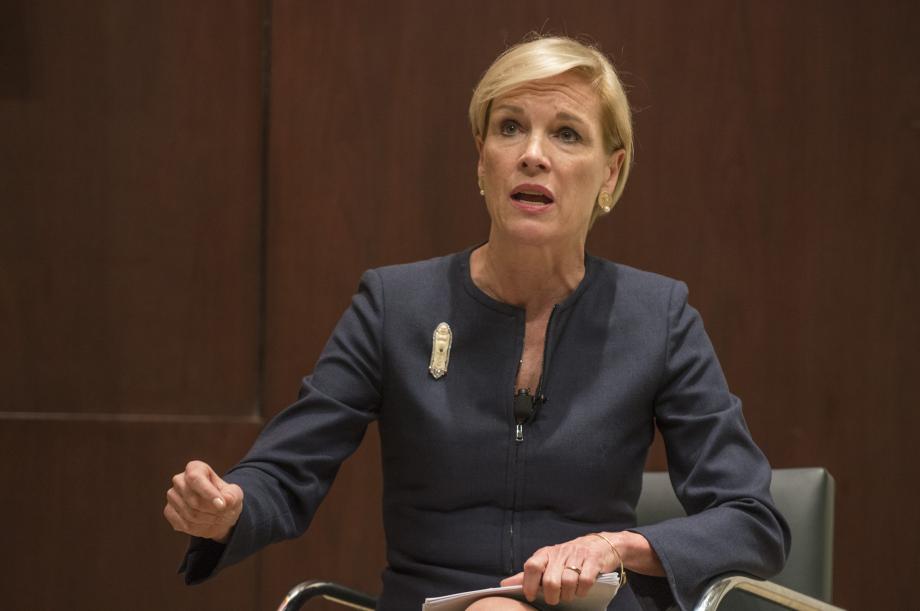Schwartz Lecture: Planned Parenthood President Cecile Richards on the Future of Reproductive Rights

Planned Parenthood President Cecile Richards delivered the Ulysses and Marguerite Schwartz Memorial Lecture at the Law School this week, telling students and other members of the University of Chicago community that “we are at a crossroads in America” in the fight for reproductive rights—and that lawyers are an important part of that mission.
“We are going to use every single tool we have in our arsenal to adapt and to fight in court and to fight in legislatures and in Congress,” said Richards, who said that the future of reproductive rights was as “fragile and less certain as anytime in my lifetime,” particularly since Donald Trump’s victory in the presidential election. “Planned Parenthood lawyers are already in a record number of courtrooms defending reproductive access. And so for all the lawyers and future lawyers here today take note: we need you now more than ever. It is full employment time in the reproductive rights arena.”
At the event co-hosted by the University's Center for the Study of Gender and Sexuality, Richards spoke of her fears that the incoming administration would cut public funding to Planned Parenthood and that Trump would appoint conservative Supreme Court justices who would overturn Roe v. Wade.
“What we do in the days and months and years to come won’t just determine what happens next, it will define who we are and what we believe. I think the question largely is: are we going to fight so our children and grandchildren have the autonomy to determine their own lives and futures no matter their gender, or what they look like, or who they are, whom they love, where they live, or how much money they make—or are we going to allow the circle of opportunity in this country to shrink back? It’s never been more important to stand up and fight for reproductive rights and to fight for the future.”
She said that in its second century Planned Parenthood, which recently celebrated its 100th anniversary, would “double down on equality,” working to ensure that everyone has access to reproductive healthcare. It is important, she said, to recognize that rights are often interconnected.
“We aren’t single-issue people, and we can’t be single-issue activists,” she said. “We have 2.5 million patients every year, and their needs are interstitial and multidimensional. We have patients that are now scared about being deported as much as they are about being able to get birth control. They are scared about the violence in their community and the opportunities their children have based on their race or their religion, just like they’re concerned about getting access to cancer screening.”
The event, held in the packed Glen A. Lloyd Auditorium, continued a Law School tradition of gathering to hear high-profile figures speak on provocative topics. Earlier this year, President Obama visited the Law School to make a pitch for his Supreme Court nominee Merrick Garland. And previous Schwartz Lecturers have taken on hot-button topics. Last year, former Australian High Court Justice Michael Kirby spoke about human rights in North Korea. In 2012, Supreme Court Justice Antonin Scalia defended originalism as the only viable method of constitutional interpretation and spoke at length about the landmark Second Amendment case District of Columbia v. Heller.
“You’ve hosted some pretty amazing people—legal scholars from around the globe and Supreme Court justices from across the ideological spectrum discussing everything from the Second Amendment to human rights in North Korea,” Richards said at the beginning of the one-hour event. “It’s really rare for me to get the opportunity to speak somewhere where the future of reproductive rights in America is one of the less controversial topics that you’ve actually covered.”